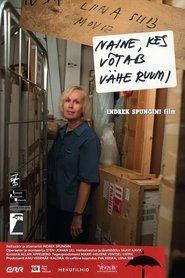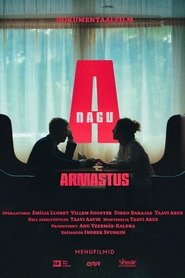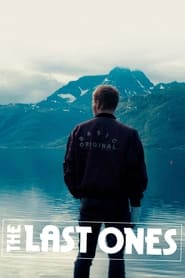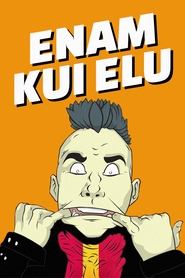detail profile indrek spungin
Peran Yang Di Mainkan Indrek Spungin
 Liina has been planning for several...
Liina has been planning for several...The Woman Who Takes Up Little Space 2025
Liina has been planning for several years to unpack the artworks that have accumulated in her storage over time and document them. When she finally takes on this task, she encounters her own works, revealing to us the background of her art, social realities, and various ways of navigating society as a woman.
 The film follows a handful of...
The film follows a handful of...Kodustatud venelased 2025
The film follows a handful of people with Russian roots living in Estonia who, unlike many of their compatriots, have found their way into the hearts of Estonians. How, and how much have they had to pay for it?
 On the shimmering shores of Europes...
On the shimmering shores of Europes...8 Views of Lake Biwa 2024
On the shimmering shores of Europe’s otherworldly edge, two teenage girls, Hanake and her best friend are discussing their first love interest while gazing out at yachts sailing to Kyoto. They whisper prayers and poems, the language of their longings. But the magic is fading in their isolated fishing village as they’re dealing with a recent disaster, with some indulging in erotic art, some in spiritual spells. It becomes clear that intimacy alone won’t help them process their loss.
 The author of the film Indrek...
The author of the film Indrek...L is for Love 2023
The author of the film, Indrek Spungin, has reached the harbour of love and peace, he is married and the father of several children. Everything seems beautiful, but one day his wife tells him that if nothing changes, then their love and marriage will soon come to an end. Indrek is confused. He takes his friend Taavi and a camera and goes to find out what love really is. He questions representatives from a variety of social groups on topics such as love and marriage.
 Tundra of Lapland Finland Rupi a...
Tundra of Lapland Finland Rupi a...The Last Ones 2020
Tundra of Lapland, Finland. Rupi, a young man who fills his days dealing and drinking, works in a mine hoping to raise enough money to escape the desolate village where he lives.
 Peeter and Berlin are partners that...
Peeter and Berlin are partners that...Pets ja Berliin 2018
Peeter and Berlin are partners that support one another. Peeter says that there are a lot of people like him in Berlin: “This place attracts people like me, because you can be your true self. Berlin doesn't judge you for who you are. Berlin accepts you the way you are. You don't see this in a lot of other cities. You won't see such attitude in Estonia!” Without a doubt, Berlin is Peeter's home and Peeter is a part of Berlin. It is a story about a man's survival in the city, which offers him almost motherly care. It is a story about loneliness, struggle and freedom.
 Freddy Grenzmann is Estonias last rockstar...
Freddy Grenzmann is Estonias last rockstar...More than Life 2018
Freddy Grenzmann is Estonia’s last rockstar and the singer of a punk-rock band called Psychoterror. And a poet. The phenomenon of a rockstar stands outside of normality – is bigger than life. Recognizingly what we can say about Freddy, is that he is not normal – not on stage, nor in life. Freddy’s creation and life are equivalent – he puts everything out there. What makes Freddy interesting is not the social or textual play, but the ammount that he puts in. Possibility of total loss of self-control and the depth of a predictable human or metaphysical agony. This is the story of the last real rockstar and poet, his work and of a punkbands anatomy.

